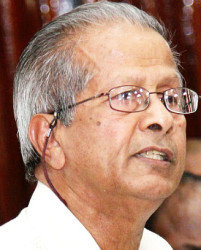An attempt by the Guyana Agricultural and General Workers Union (GAWU) to have the Caribbean Court of Justice (CCJ) compel the Guyana Court of Appeal to “urgently” adjudicate its application to prevent the closure of the East Demerara and Rose Hall sugar estates has been denied.
According to GAWU President, Komal Chand the CCJ has told counsel for the union that they would not hear the matter until all local avenues have been exhausted.
“I’m not sure of the mechanism which was used but the lawyer has informed me that they said they won’t get involved until the Appeals Court here has looked at the case,” Chand said.

GAWU and the National Association of Agricultural, Commercial and Industrial Employees (NAACIE) have appealed a November 9, ruling by acting Chief Justice Roxane George which refused the nisi orders being sought by GAWU and NAACIE against the Guyana Sugar Corporation (GuySuCo) and Cabinet’s decision to close the estates.
In their appeal they argued that Justice George erred in the determination to deny their application. Since the time for the closure is fast approaching, the unions had hoped that the Appeal Court would consider its matter as soon as possible however on Thursday the case was adjourned to January 15, 2018.
GAWU President, Komal Chand, told a press conference on Friday that the unions through their legal representatives in Guyana and Trinidad had approached the CCJ since the case was time sensitive.
“We are reliably informed that the CCJ will immediately organise a panel of judges to hear the arguments of NAACIE and GAWU, through our lawyers, why this must be granted. Whether they will direct the Court here to listen to this matter, since it is important and timely as you rightly pointed out. If the closure takes place and the matter is heard afterwards, then it might not be a fruitful exercise,” Chand had said.
GAWU’s lawyer Devindra Kissoon told the Sunday Stabroek that documents were filed with the court last Thursday.
The estates were initially scheduled to be closed by year end. However, more recently, Minister of State Joseph Harmon announced that the closures are more likely going to take effect early in New Year.
In their application before the chief justice, the unions had argued that the decision to close the estates was improper as there was insufficient consultations between the government and GuySuCo on one hand, and GAWU and the NAACIE on the other.
It is their contention too that sufficient time had not been allocated for consultations on the future of the sugar industry.
The unions have said that the four hours in total spent on the three occasions the parties met were not adequate to have decided the future of the sugar industry.
GAWU and NAACIE have argued that they have a legitimate expectation to be consulted in a comprehensive manner, while noting previous instances where the sugar corporation had extensively involved them in decisions which would have affected the employment of workers.
Pointing to the Com-mission of Inquiry (Col) into the operations of the sugar industry, the unions lamented the time invested reviewing information, considering submissions from individuals and organisations, and visiting the estates and interacting with workers and managerial personnel, only for the government to disregard its recommendation that closure not be pursued.
According to the unions, the decision to close estates was clearly not informed by all factors to be considered, especially a socio-economic study which should have necessitated any such move.
The application advanced too that the decision to close failed to conform to procedures clearly contained in the Trade Union Recognition Act and the Termination of Employment and Severance Pay Act.
The unions sought to have the government and GuySuCo to engage “in a proper and full consultation,” holding that such an exercise will result in a different decision being taken.
They were also asking the High Court to have the state pay damages to the ex-Wales Estate workers.
They argued, too, that the State, as owner of GuySuCo, should be bound to provide suitable alternative employment or income support in lieu of work to the displaced workers for the rest of their working lives.
The unions were also seeking pension for the affected workers, equivalent to what they would have received had they been employed by the sugar corporation, arguing that they have a fair expectation to employment until they attain pensionable age.
GAWU and NAACIE had contended that sugar workers possess unique skills which are not portable, presenting grave difficulty for them to secure employment beyond the industry.






